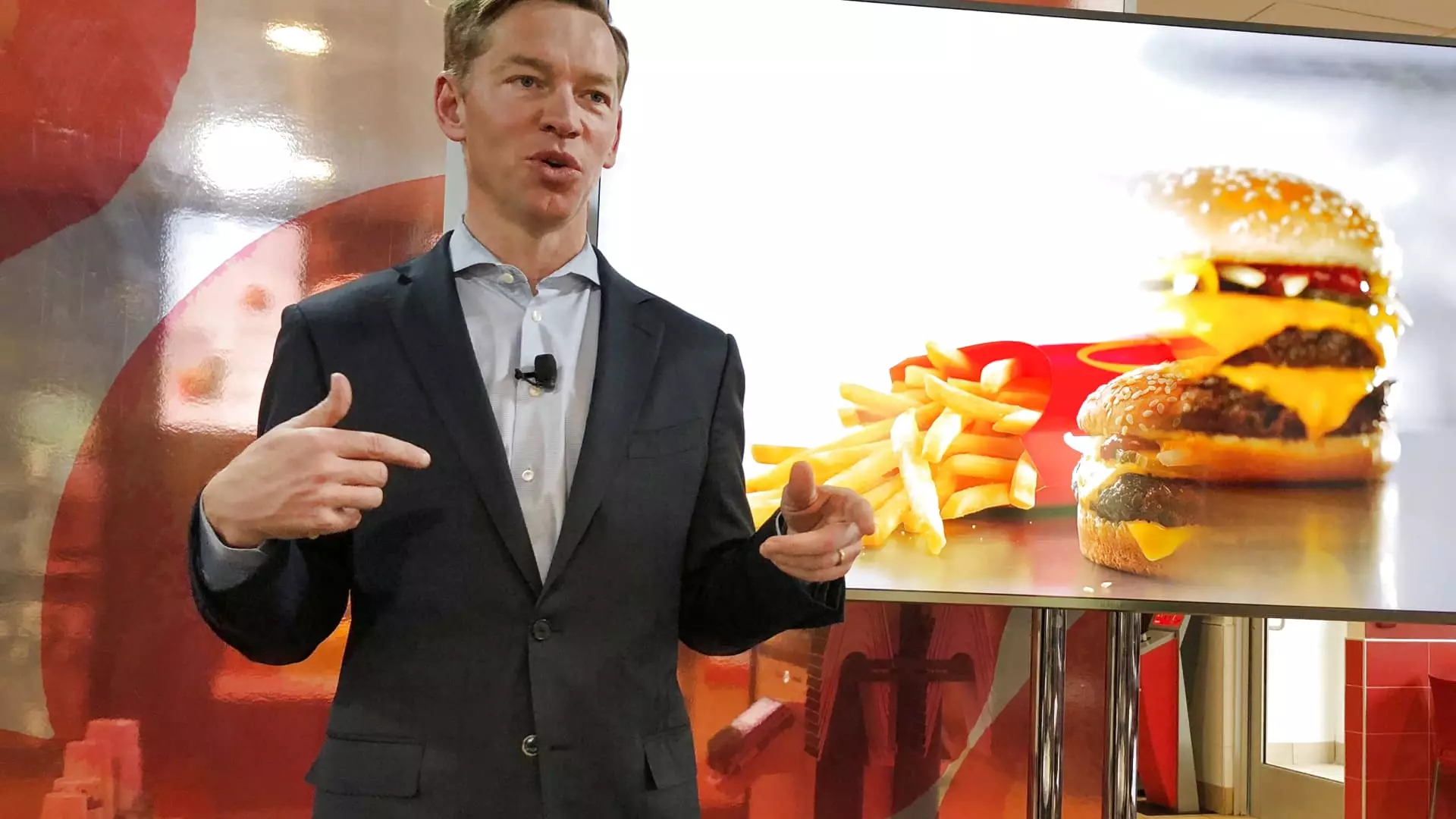In the ever-evolving landscape of fast food, few incidents can shake brand reputation as severely as a health scare. McDonald’s, a titan in the food industry, recently faced such a challenge when a deadly E. coli outbreak was linked to its Quarter Pounder burgers. In a bid to regain consumer trust and stabilize operations, CEO Chris Kempczinski shared encouraging updates during an investors’ call, stating that the situation is largely under control. While the fast-food giant aims to move forward, the ramifications of this crisis reveal substantial lessons in crisis management and consumer relations that go beyond immediate business concerns.
Following the outbreak announcement, McDonald’s experienced a tangible drop in daily sales and foot traffic across its U.S. locations. CFO Ian Borden remarked that sales turned negative, reflecting a consumer base shaken by safety concerns. This instance of immediate market response illustrates the critical role public perception plays in the success of a brand. Even though Kempczinski emphasizes that the worst is behind them, the immediate repercussions illustrate the fragile nature of consumer trust in the fast-food sector. The company’s swift reaction to halt the offending menu item was crucial, yet the deeper issue lies in restoring customer confidence that may take longer to mend.
To combat the fallout from the outbreak, McDonald’s has implemented strategic steps aimed at reassuring customers while salvaging their reputation. They have not only pulled Quarter Pounders from certain areas but also altered the product by removing slivered onions in around 900 locations as a precautionary measure. In an environment where transparency is more valued than ever, Kempczinski’s public apology and the company’s pledge to rectify the situation signify an important commitment to consumer safety. These actions are vital in a scenario where distrust can linger long after headlines fade.
Despite the immediate backlash, reports suggest a gradual recovery in McDonald’s sales, driven by strategic offerings like the popular $5 value meal and the recent launch of the Chicken Big Mac. With U.S. same-store sales for the third quarter showing an increase of 0.3% year-over-year, there is a sliver of hope for a comeback. Yet, it is essential to know that this growth, while positive, is marginal and weaker than expected. Such figures underscore the complicated dynamics between health concerns and consumer behavior, revealing that past successes can be fleeting in the face of emerging risks.
The E. coli outbreak at McDonald’s serves as a cautionary tale for the fast-food industry as a whole. While the company has initiated damage control measures, the incident casts a long shadow over the operational protocols surrounding food safety. This is not only relevant for McDonald’s but for all players in the food sector. As consumers become increasingly health-conscious, a single health crisis can lead to the long-term erosion of brand loyalty and customer retention. Thus, the industry must adopt robust preventative measures to mitigate the risks that accompany food-related outbreaks.
As McDonald’s navigates through the aftermath of the outbreak, the focus must remain on proactive measures and transparent communication. With numerous lawsuits already filed against them, the road to total recovery could be riddled with challenges. While the company claims to have the situation contained, the lingering effects on consumer confidence and brand loyalty may require ongoing efforts beyond mere sales figures. To restore their stature, McDonald’s must prioritize food safety and transparency, re-establishing itself as a frontrunner in the fast-food industry while demonstrating their commitment to customer well-being.
The E. coli outbreak has propelled necessary discussions about safety protocols and accountability in the fast-food landscape. McDonald’s journey forward will serve as an essential case study for both resilience and vulnerability in a sector that serves billions around the globe. Rebuilding trust takes time, effort, and an unwavering commitment to customer safety. For McDonald’s, the future holds the potential for redemption, but only if they prioritize the lessons learned from this crisis.

Leave a Reply